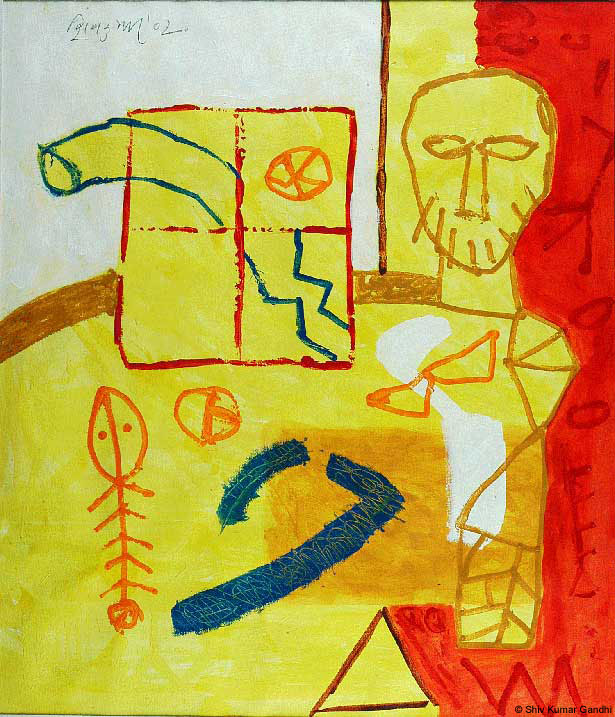प्रतिलिपि प्रश्नावली/Pratilipi Questionnaire

Bhashwati
1. Have you ever felt ‘terrorized’ by something? Have you ever told / described it to someone? Has it found an expression in your work?
I have felt terrorized at a very concrete level but here I would like to talk of my deeper experience of terror which has as much to do with violence as with systemic impoverishment of individuals and communities in material and non material ways.
On the one hand I feel terrorized by the impunity exercised by those that wear the mantles of cause and ideology on either side of law. On the other hand terror paralyses me when I see the impenetrable wall of prejudice that continues to dominate our socio cultural discourse across the board. It leaves almost no room for dialogue, renders our consciousness fractious and incapable of functioning outside a framework of conflict and conquest.
No it is too painful and complex to describe in ordinary interaction.
Yes I write about it.
2. At a psychological / aesthetic / philosophical level, can terror be ‘represented’ in art? Would you like to name certain works (art/writing) in which it has been done effectively?
The genesis of terror, implication of acts of terror and examined and unexamined responses to terror can be represented in art and to some extent so can terror per se inasmuch as it is contained in at least three rasas of our literary tradition, raudra, bhayanak and vibhatsa.
3. Which would you consider to be the most terrorizing moment / event / ideology you have known?
Work took me to the interior areas of the LOC in Uri, Baramullah in Feb 2007. Although I have lived and worked in most conflict zones in the country those 15 days were the most disturbing. To clarify, it was not war time and there were no reported encounters or terror episodes during our stay. My fear radiated from the presence of gun toting Indian army jawaans and officers we had to walk and drive past every 10 meters. Even more than fear it was a sense of being invaded, of constantly being at the receiving end of firearms that could go off with or without provocation and often did, on the winding hill tracts, in the market place and in the villages. All I could think of for days after, was how lives sandwiched between brute forces, both legitimate (read sanctioned) and reactive, could ever be NORMAL.
4. How do you respond to the rhetoric of terror(ism) in mainstream media and politics?
My response has fallen into a consistent pattern: Initial skepticism progresses through stages of annoyance and exasperation to pure embarrassment at the utter lack of objectivity, discretion or even plain sensitivity.
I am terrified by the all pervading might of untruth. Not only does the media make mockery of our national motto of satyameva jayate, it establishes beyond all reasonable doubt that only untruth will prevail.
5. Have terrorist activities made you feel insecure?
Far less than being governed by a set of unintelligent people does. While ‘terrorist activity’ is a random occurrence, administrative structures are irremovable insecurity inducing devices and therefore far more damaging because they naturalize the sense of insecurity almost as if it were an inevitable component of the conscious state.
I don’t know why, but this line has been one of the most comforting in recent times: “we are not as important in the universe as we might believe.” Thanks Sameer!